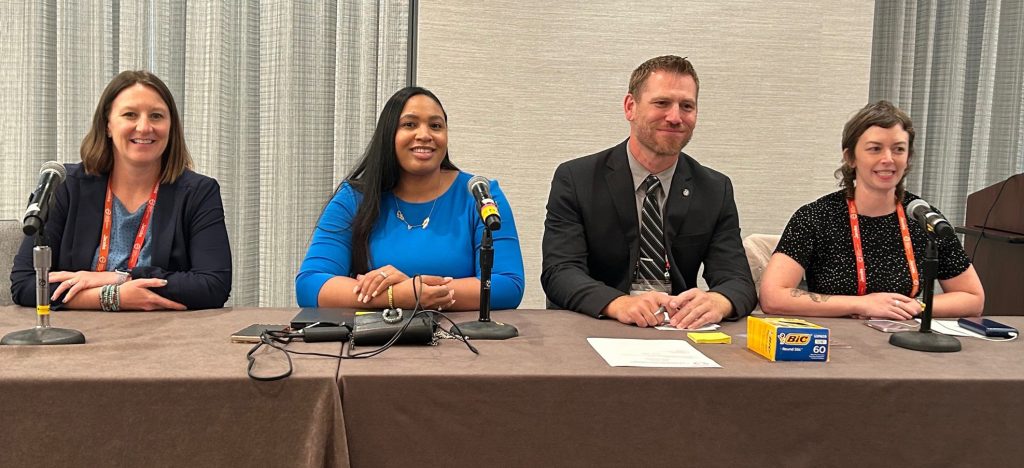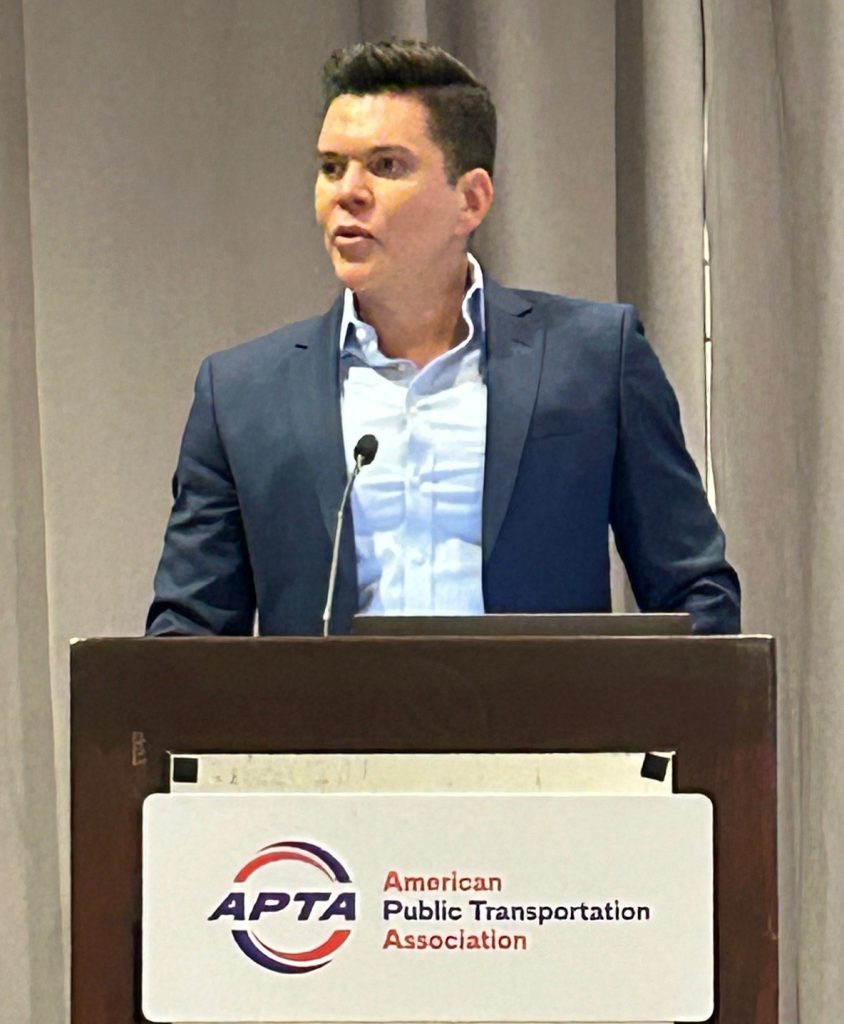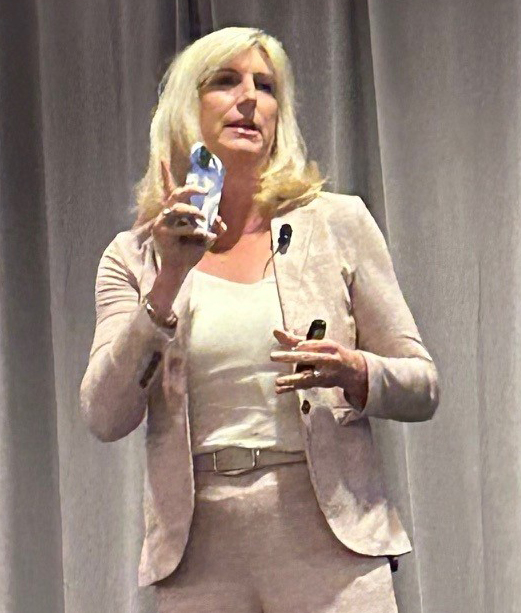Denver RTD Hosts APTA Sustainability / Operations Planning and Scheduling Workshop
8/14/2025

More than 300 transit professionals gathered in Denver, CO, Aug. 10-13 for APTA’s 2025 Sustainability / Operations Planning and Scheduling Workshop.
This co-located event convened transit practitioners focused on the Sustainability Triple Bottom Line (environmental / social / economic), along with the service planners and schedulers who design the transit services the public uses and relies upon.
Hosts for the event, Denver Regional Transit District (RTD), provided multiple tour options throughout the week to various elements of its multimodal system. Tour highlights included East Colfax Avenue BRT Construction, TOD at Central Park Station, Denver’s 16th Street Transit Mall, and Denver’s Union Station.

RTD Deputy Executive Director Angel Peña and others from the RTD team discussed some of the agency’s latest initiatives at the Opening General Session. These included Denver Connector microtransit, a new RTD Sustainability Report, and the process for selecting and implementing new scheduling and run-cutting software.
The keynote speaker was Amy Ford, executive director, department of transportation and infrastructure, City and County of Denver. She engaged a packed ballroom in a discussion of the future of cities and transportation, weaving in technology and new mobility trends, with consideration of would-be positive and negative impacts.
The annual “Route Match Game” tested attendees’ knowledge of transit arcana. Teams participating in this lighthearted event pooled their information together in response to moderator questions.

Session topics from the Sustainability Track included The Business Case for Sustainability; Planning Resilient Systems; and Securing Funding for Sustainability Initiatives. Topics from the Transit Operations Planning and Scheduling Track included Bus Stop and Right-of-Way Issues; Transit Network Design and Redesign; and Implementing New Service. Current case studies were presented in each area.
Presentations will be available here soon to those who registered for the workshop.
Much appreciation for APTA Sustainability Committee Chair Larry Murphy of Jacobs and Transit Operations Planning and Scheduling Subcommittee Chair Leslie Bienenfeld of the San Francisco Municipal Transportation Agency for their leadership in planning the event. APTA members are encouraged to become involved in these committees.